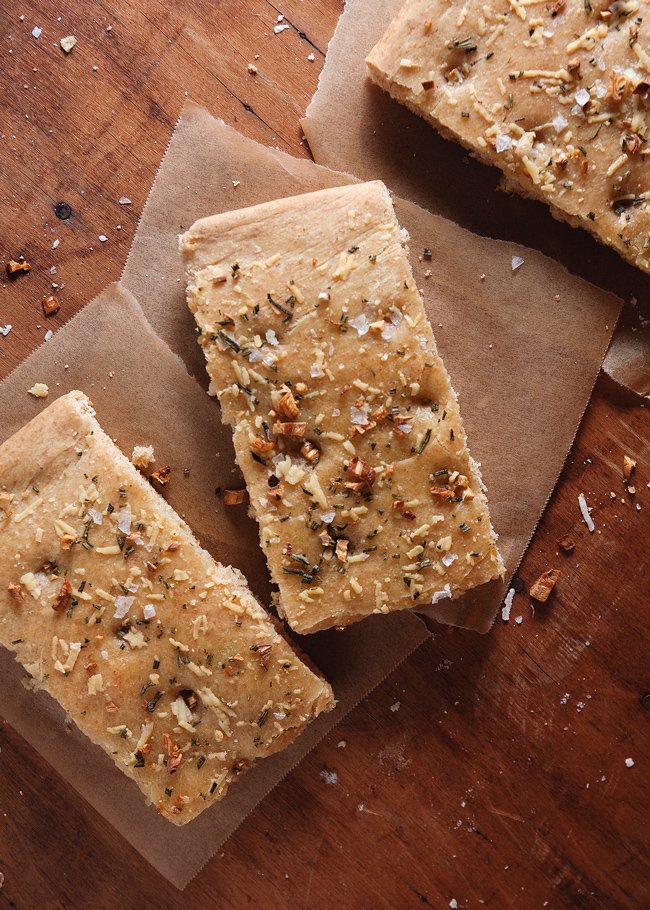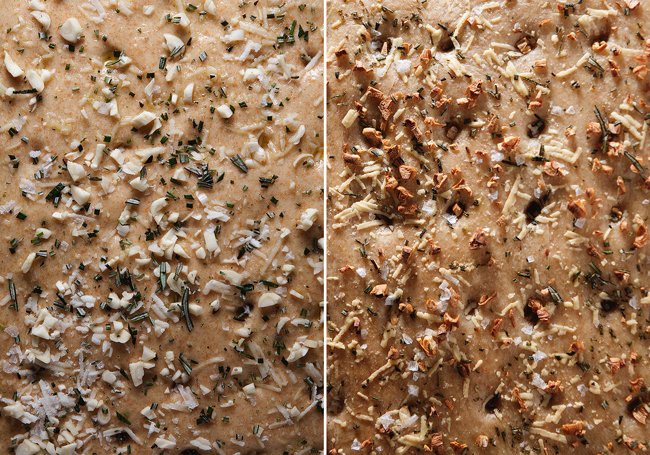Is Cottage Cheese Good for GERD? A Guide for Heartburn Relief
Cottage cheese is a versatile and nutritious dairy product loved for its creamy texture and high protein content. It’s often included in weight-loss diets, meal prep plans, and quick snacks. However, for individuals with GERD (gastroesophageal reflux disease) or frequent acid reflux, questions often arise about whether cottage cheese is a safe choice.
In this article, we’ll explore the connection between cottage cheese and GERD, its potential benefits and risks, and how to include it in your diet without triggering symptoms. Additionally, we’ll provide practical tips for making reflux-friendly choices when it comes to this popular dairy product.
What is GERD, and How Do Foods Impact It?
GERD is a chronic digestive condition where stomach acid flows back into the esophagus, causing symptoms such as heartburn, regurgitation, chest discomfort, and bloating.
Certain foods can worsen GERD symptoms by:
- Relaxing the lower esophageal sphincter (LES), the muscle that prevents acid from rising into the esophagus.
- Increasing stomach acid production.
- Triggering bloating, which adds pressure to the stomach.
Understanding whether cottage cheese fits into a GERD-friendly diet requires looking at its acidity, fat content, and individual tolerability.
Is Cottage Cheese Acidic?
Cottage cheese is mildly acidic, with a pH range between 4.7 and 5.4. This acidity level is relatively low compared to other dairy products, such as yogurt, but still falls within the acidic range.
However, the acidity of cottage cheese is not the sole factor determining its effect on GERD. Other elements, such as fat content and portion size, play significant roles in its impact on acid reflux symptoms.
Can Cottage Cheese Trigger GERD Symptoms?
Cottage cheese can either alleviate or worsen GERD symptoms, depending on how it’s consumed. Let’s examine its potential effects:
1. High-Fat Cottage Cheese and GERD
Full-fat cottage cheese contains more fat, which can relax the LES and increase the likelihood of acid reflux. For GERD sufferers, high-fat foods are a known trigger.
2. Low-Fat or Non-Fat Cottage Cheese
Low-fat or non-fat cottage cheese is less likely to trigger GERD symptoms because it has a reduced fat content. It provides a lighter option for those sensitive to high-fat foods.
3. Lactose Sensitivity
Some individuals with GERD also have lactose intolerance, which can lead to bloating and stomach discomfort when consuming dairy products like cottage cheese. This may indirectly worsen GERD symptoms.
4. Portion Size Matters
Eating large quantities of cottage cheese in one sitting can overfill the stomach, increasing the risk of acid reflux.
Why Cottage Cheese May Be Good for GERD?
For many GERD sufferers, cottage cheese can be a safe and even beneficial food choice when consumed in moderation. Here’s why:
1. High in Protein
Cottage cheese is an excellent source of protein, which helps keep you full and satisfied without causing a rapid increase in stomach acid.
2. Low in Spices and Additives
Plain cottage cheese is a simple food that doesn’t contain reflux triggers like spicy seasonings or acidic preservatives, making it a neutral choice for sensitive stomachs.
3. Calcium and Magnesium Content
The calcium and magnesium in cottage cheese can promote muscle health, including the proper functioning of the LES.
4. Easy to Digest
Cottage cheese is softer and easier to digest compared to other types of cheese, reducing the risk of bloating or irritation.
Tips for Including Cottage Cheese in a GERD-Friendly Diet
To enjoy cottage cheese without triggering GERD symptoms, follow these practical tips:
1. Choose Low-Fat or Non-Fat Options
Opt for low-fat or non-fat cottage cheese to reduce the risk of LES relaxation and acid reflux.
2. Pair with Alkaline Foods
Combine cottage cheese with non-acidic, reflux-friendly foods like:
These foods help balance the acidity of cottage cheese and create a more neutral meal.
3. Avoid Acidic Add-Ins
Refrain from mixing cottage cheese with acidic ingredients like tomatoes, vinegar, or citrus fruits, as these can aggravate reflux symptoms.
4. Eat Small Portions
Stick to moderate servings of cottage cheese—about 1/2 to 1 cup—to avoid overloading the stomach.
5. Monitor Your Body’s Reaction
Everyone’s tolerance to foods differs. Start with a small amount of cottage cheese and observe how your body reacts before increasing your intake.
Reflux-Friendly Cottage Cheese Recipe
Here’s a quick, GERD-friendly recipe to try:
Cottage Cheese and Banana Bowl
Ingredients:
- 1/2 cup low-fat cottage cheese
- 1 medium banana, sliced
- 1 teaspoon honey (optional)
- A sprinkle of cinnamon (optional)
Instructions:
- Scoop the cottage cheese into a bowl.
- Top with banana slices.
- Drizzle with honey and sprinkle with cinnamon, if desired.
- Enjoy as a light and satisfying snack or breakfast.
This dish combines the mild flavor of cottage cheese with the alkalinity of bananas, making it a soothing option for those with GERD.
FAQs About Cottage Cheese and GERD
1. Is cottage cheese good for GERD?
Low-fat or non-fat cottage cheese can be a GERD-friendly food due to its high protein content and mild flavor. However, full-fat versions may trigger symptoms in some individuals.
2. Can cottage cheese cause acid reflux?
Cottage cheese may cause acid reflux if it’s high in fat, consumed in large portions, or paired with acidic or spicy ingredients.
3. What’s the best type of cottage cheese for acid reflux?
Non-fat or low-fat plain cottage cheese is the best option for those with acid reflux, as it’s less likely to relax the LES or increase stomach acid.
4. How much cottage cheese is safe to eat with GERD?
A moderate serving of 1/2 to 1 cup of low-fat cottage cheese is typically safe for individuals with GERD.
5. Are there any alternatives to cottage cheese for GERD sufferers?
If cottage cheese doesn’t work for you, try other reflux-friendly protein sources like plain Greek yogurt (low-fat), tofu, or scrambled egg whites.
Conclusion
Cottage cheese can be a healthy and GERD-friendly food when consumed mindfully. Its high protein content, mild acidity, and versatility make it a suitable choice for many individuals with acid reflux. However, it’s important to choose low-fat or non-fat varieties, avoid acidic pairings, and eat in moderation.
By incorporating cottage cheese into a balanced, reflux-friendly diet, you can enjoy its nutritional benefits without discomfort. If you’re unsure how your body reacts to it, start with a small serving and monitor your symptoms. For more tips on managing GERD through diet, explore our other articles and recipes for heartburn relief!
Spelt Focaccia With Rosemary, Garlic, And Pecorino
I made buttermilk pancakes the other day and substituted a little of the all-purpose flour for spelt. They were so good! It made me realize that it’s been a long time since I baked with whole grain flours (hard to believe that it had been my sole obsession three years ago). Also, yikes, I just realized the last recipe featured on this blog containing a flour other than all-purpose was way back in November! They’re really good cookies by the way.

I decided to remedy this immediately. As usual, I pulled out my battered copy of Good to the Grain. The recipes coupled with the photography always fill me with this longing to lead a more wholesome life, with no greasy take-out food, no indoor pants, and fresh air coursing through the rooms at all times. Let’s address why these are impossibilities.
First, there’s no way I could do away with my comfort food burritos, which are filled to the brim with rice, beans, meat (MEAT), and other stuff that’s good for the soul but not so much for the waistline (it feels weird writing about waistlines, as I don’t think I’ve ever given mine any proper thought). Secondly, I hate wearing jeans, which is something about me you would never guess because I ALWAYS WEAR JEANS. But it’s true. I’d much rather have my legs be swathed in loose, silky, comfortable pants when there’s no one to impress.
And finally, it’s still 40 degrees out, yo! Despite the fact that both Chris and I think of our heating as the devil because it makes the apartment unbearably stuffy, it only turns on twice a day, so to open the windows would be wasting the heated air.
I think the point I’m trying to make is that the healthful life I dream about is probably largely illusory. Though I enjoy baking with whole grain flours, and eating vegetables with all my meals (well, not breakfast—I do give myself a break then), and going to the gym thrice weekly, I’m not perfect.
Anyway, the focaccia called to me.

Spelt foccacia is less springy than regular foccacia, of that I’m sure. Since spelt contains low amounts of gluten, doughs containing it don’t rise as well and result in a lack of the same effervescence as all-purpose doughs. Hence, a slightly denser texture and less sticky.
On the other hand, spelt has a great flavor that I think came through in this recipe. It was kind of hard to tell, with such strong-flavored toppings all competing for attention, but I detected a wheat-flour like taste, with that signature nuttiness I really love.
What disappointed me the most about this recipe was probably due to the overall crappiness of my oven, but my focaccia refused to golden-brown properly! Very disappointing, especially because, I’d kept it in there for so long that the garlic and rosemary started burning. It’s alright. I don’t think the taste suffered too much, but it made for a slightly less attractive presentation.

I don’t need to tell you what to do with focaccia. Neither do I need to tell you how to top it. But, I will add, rosemary is one of my favorite herbs, and it really suits breads, spelt, and garlic and pecorino. With that said, a simple sea salt topping would be enough to make me a happy sailor, and I would gladly eat this focaccia in any form it was offered. In my case, it went perfectly alongside leftover soup (third batch and still going strong), always a winning combination.
(I should also add, I accidentally bought 2 pounds of active dry yeast, so I think I’m going to take up bread-making as a hobby for the foreseeable future. Focaccia is only the beginning, my friends!)

SPELT FOCACCIA WITH ROSEMARY, GARLIC, AND PECORINO
Adapted from Good to the Grain
Makes 1 rectangular focaccia
Ingredients:
1 package active dry yeast (2-1/4 tsp)
Pinch of sugar
1 cup spelt flour
2 cups all-purpose flour, plus more for kneading
1 T kosher salt
1/4 cup plus 2 T olive oil (plus more for greasing)
garlic, herbs, spices, coarse salt, cheese, and any other toppings of choice
Directions:
Lightly rub a large bowl with olive oil. Add 1-1/4 cups of warm water, yeast, and sugar to another large bowl. Stir, and allow the yeast to bloom for about 5 minutes (should start bubbling). Add the flours, salt, and 2 T olive oil and stir to combine. Pour the dough onto a lightly floured surface and begin kneading, adding up to 1/2 cup of all-purpose flour if needed (depending on the manageability of the dough, as it’s quite sticky). Knead for about 10 minutes until the dough is elastic and supple (you’ll start to feel the difference—just keep kneading!)
Put the dough in the oiled bowl, turning it so it’s lightly covered with the olive oil. Cover with a towel and let rise for about 2 hours, or until doubled in size.
Generously oil a baking sheet with olive oil. Place the risen dough onto the baking sheet and stretch it so it fills the pan. Dimple it with your thumb, then cover with a towel and let rise for about an hour.
Preheat your oven to 400 degrees F. Now it’s time to top the dough. First, brush a 1/4 cup of olive oil onto the dough, then sprinkle with the toppings of your choice. Bake for 22 to 25 minutes until golden brown. Allow the bread to cool slightly before slicing and serving.
As a note, you can store the dough in the fridge after the first rise. Just cover it tightly with plastic wrap and make sure to let it come to room temperature before continuing on with the recipe.
